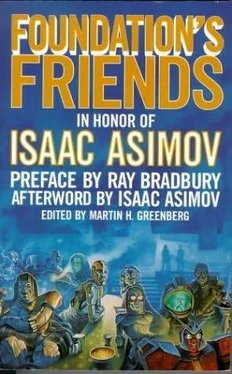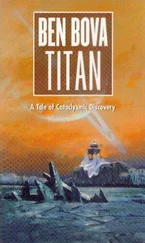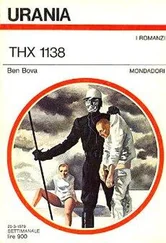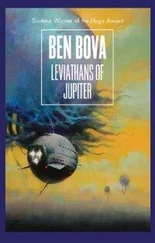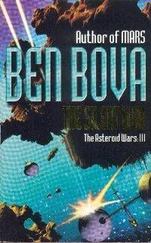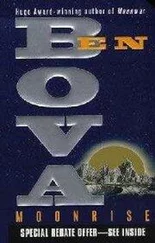Ben Bova - Foundation’s Friends
Здесь есть возможность читать онлайн «Ben Bova - Foundation’s Friends» весь текст электронной книги совершенно бесплатно (целиком полную версию без сокращений). В некоторых случаях можно слушать аудио, скачать через торрент в формате fb2 и присутствует краткое содержание. Год выпуска: 1989, ISBN: 1989, Издательство: Tor Books, Жанр: Фантастика и фэнтези, на английском языке. Описание произведения, (предисловие) а так же отзывы посетителей доступны на портале библиотеки ЛибКат.
- Название:Foundation’s Friends
- Автор:
- Издательство:Tor Books
- Жанр:
- Год:1989
- ISBN:ISBN: 0-312-93174-3
- Рейтинг книги:3 / 5. Голосов: 1
-
Избранное:Добавить в избранное
- Отзывы:
-
Ваша оценка:
- 60
- 1
- 2
- 3
- 4
- 5
Foundation’s Friends: краткое содержание, описание и аннотация
Предлагаем к чтению аннотацию, описание, краткое содержание или предисловие (зависит от того, что написал сам автор книги «Foundation’s Friends»). Если вы не нашли необходимую информацию о книге — напишите в комментариях, мы постараемся отыскать её.
Foundation’s Friends — читать онлайн бесплатно полную книгу (весь текст) целиком
Ниже представлен текст книги, разбитый по страницам. Система сохранения места последней прочитанной страницы, позволяет с удобством читать онлайн бесплатно книгу «Foundation’s Friends», без необходимости каждый раз заново искать на чём Вы остановились. Поставьте закладку, и сможете в любой момент перейти на страницу, на которой закончили чтение.
Интервал:
Закладка:
The only explanation that made any sense-and it did not make very much sense-was that it was coming from some unknown and perhaps even unknowable place, some sort of parallel universe, where the laws of nature were different and the binding forces of the atom were so much more powerful that plutonium-186 could be a stable isotope.
Why they were sending odd lumps of plutonium-186 here was something that no one could begin to guess. An even more important question was how they could be made to stop doing it. The radioactive breakdown of the plutonium-186 would eventually transform it into ordinary osmium or tungsten, but the twenty positrons that each plutonium nucleus emitted in the course of that process encountered and annihilated an equal number of electrons. Our universe could afford to lose twenty electrons here and there, no doubt. It could probably afford to go on losing electrons at a constant rate for an astonishingly long time without noticing much difference. But sooner or later the shift toward an overall positive charge that this electron loss created would create grave and perhaps incalculable problems of symmetry and energy conservation. Would the equilibrium of the universe break down? Would nuclear interactions begin to intensify? Would the stars-even the Sun-erupt into supernovas?
“This can’t go on,” Fletcher said gloomily.
Hammond gave him a sour look. “So? We’ve been saying that for six months now.”
“It’s time to do something. They keep shipping us more and more and more, and we don’t have any idea how to go about telling them to cut it out.”
“We don’t even have any idea whether they really exist,” Raymond Nikolaus put in.
“Right now that doesn’t matter. What matters is that the stuff is arriving constantly, and the more of it we have, the more dangerous it is. We don’t have the foggiest idea of how to shut off the shipments. So we’ve got to find some way to get rid of it as it comes in.”
“And what do you have in mind, pray tell?” Hammond asked.
Fletcher said, glaring at his colleague in a way that conveyed the fact that he would brook no opposition, “I’m going to talk to Asenion.”
Hammond guffawed. “Asenion? You’re crazy!”
“No. He is. But he’s the only person who can help us.”
It was a sad case, the Asenion story, poignant and almost incomprehensible. One of the finest minds atomic physics had ever known, a man to rank with Rutherford, Bohr, Heisenberg, Fermi, Meitner. A Harvard degree at twelve, his doctorate from MIT five years later, after which he had poured forth a dazzling flow of technical papers that probed the deepest mysteries of the nuclear binding forces. As the twenty-first century entered its closing decades he had seemed poised to solve once and for all the eternal riddles of the universe. And then, at the age of twenty-eight, without having given the slightest warning, he walked away from the whole thing.
“I have lost interest,” he declared. “Physics is no longer of any importance to me. Why should I concern myself with these issues of the way in which matter is constructed? How tiresome it all is! When one looks at the Parthenon, does one care what the columns are made of, or what sort of scaffolding was needed to put them in place? That the Parthenon exists, and is sublimely beautiful, is all that should interest us. So too with the universe. I see the universe, and it is beautiful and perfect. Why should I pry into the nature of its scaffolding? Why should anyone?”
And with that he resigned his professorship, burned his papers, and retreated to the thirty-third floor of an apartment building on Manhattan’s West Side, where he built an elaborate laboratory-greenhouse in which he intended to conduct experiments in advanced horticulture.
“Bromeliads,” said Asenion. “I will create hybrid bromeliads. Bromeliads will be the essence and center of my life from now on.”
Romelmeyer, who had been Asenion’s mentor at Harvard, attributed his apparent breakdown to overwork, and thought that he would snap back in six or eight months. Jantzen, who had had the rare privilege of being the first to read his astonishing dissertation at MIT, took an equally sympathetic position, arguing that Asenion must have come to some terrifying impasse in his work that had compelled him to retreat dramatically from the brink of madness. “Perhaps he found himself looking right into an abyss of inconsistencies when he thought he was about to find the ultimate answers,” Jantzen suggested. “What else could he do but run? But he won’t run for long. It isn’t in his nature.”
Burkhardt, of Cal Tech, whose own work had been carried out in the sphere that Asenion was later to make his own, agreed with Jantzen’s analysis. “He must have hit something really dark and hairy. But he’ll wake up one morning with the solution in his head, and it’ll be goodbye horticulture for him. He’ll turn out a paper by noon that will revolutionize everything we think we know about nuclear physics, and that’ll be that.”
But Jesse Hammond, who had played tennis with Asenion every morning for the last two years of his career as a physicist, took a less charitable position. “He’s gone nuts,” Hammond said. “He’s flipped out altogether, and he’s never going to get himself together again. “
“You think?” said Lew Fletcher, who had been almost as close to Asenion as Hammond, but who was no tennis player.
Hammond smiled. “No doubt of it. I began noticing a weird look in his eyes starting just about two years back. And then his playing started to turn weird too. He’d serve and not even look where he was serving. He’d double-fault without even caring. And you know what else? He didn’t challenge me on a single out-of-bounds call the whole year. That was the key thing. Used to be, he’d fight me every call. Now he just didn’t seem to care. He just let everything go by. He was completely indifferent. I said to myself, This guy must be flipping out.”
“Or working on some problem that seems more important to him than tennis. “
“Same thing,” said Hammond. “No, Lew, I tell you-he’s gone completely unglued. And nothing’s going to glue him again.”
That conversation had taken place almost a year ago. Nothing had happened in the interim to change anyone’s opinion. The astounding arrival of plutonium-186 in the world had not brought forth any comment from Asenion’s Manhattan penthouse. The sudden solemn discussions of fantastic things like parallel universes by otherwise reputable physicists had apparently not aroused him either. He remained closeted with his bromeliads high above the streets of Manhattan.
Well, maybe he is crazy, Fletcher thought. But his mind can’t have shorted out entirely. And he might just have an idea or two left in him
Asenion said, “Well, you don’t look a whole lot older, do you?”
Fletcher felt himself reddening. “Jesus, Ike, it’s only been eighteen months since we last saw each other!”
“Is that all?” Asenion said indifferently. “It feels like a lot more to me.”
He managed a thin, remote smile. He didn’t look very interested in Fletcher or in whatever it was that had brought Fletcher to his secluded eyrie.
Asenion had always been an odd one, of course-aloof, mysterious, with a faint but unmistakable air of superiority about him that nearly everyone found instantly irritating. Of course, he was superior. But he had made sure that he let you know it, and never seemed to care that others found the trait less than endearing.
He appeared more remote than ever, now, stranger and more alien. Outwardly he had not changed at all: the same slender, debonair figure, surprisingly handsome, even striking. Though rumor had it that he had not left his penthouse in more than a year, there was no trace of indoor pallor about him. His skin still had its rich deep olive coloring, almost swarthy, a Mediterranean tone. His hair, thick and dark, tumbled down rakishly over his broad forehead. But there was something different about his dark, gleaming eyes. The old Asenion, however preoccupied he might have been with some abstruse problem of advanced physics, had nearly always had a playful sparkle in his eyes, a kind of amiable devilish glint. This man, this horticultural recluse, wore a different expression altogether-ascetic, mist-shrouded, absent. His gaze was as bright as ever, but the brightness was a cold one that seemed to come from some far-off star.
Читать дальшеИнтервал:
Закладка:
Похожие книги на «Foundation’s Friends»
Представляем Вашему вниманию похожие книги на «Foundation’s Friends» списком для выбора. Мы отобрали схожую по названию и смыслу литературу в надежде предоставить читателям больше вариантов отыскать новые, интересные, ещё непрочитанные произведения.
Обсуждение, отзывы о книге «Foundation’s Friends» и просто собственные мнения читателей. Оставьте ваши комментарии, напишите, что Вы думаете о произведении, его смысле или главных героях. Укажите что конкретно понравилось, а что нет, и почему Вы так считаете.
